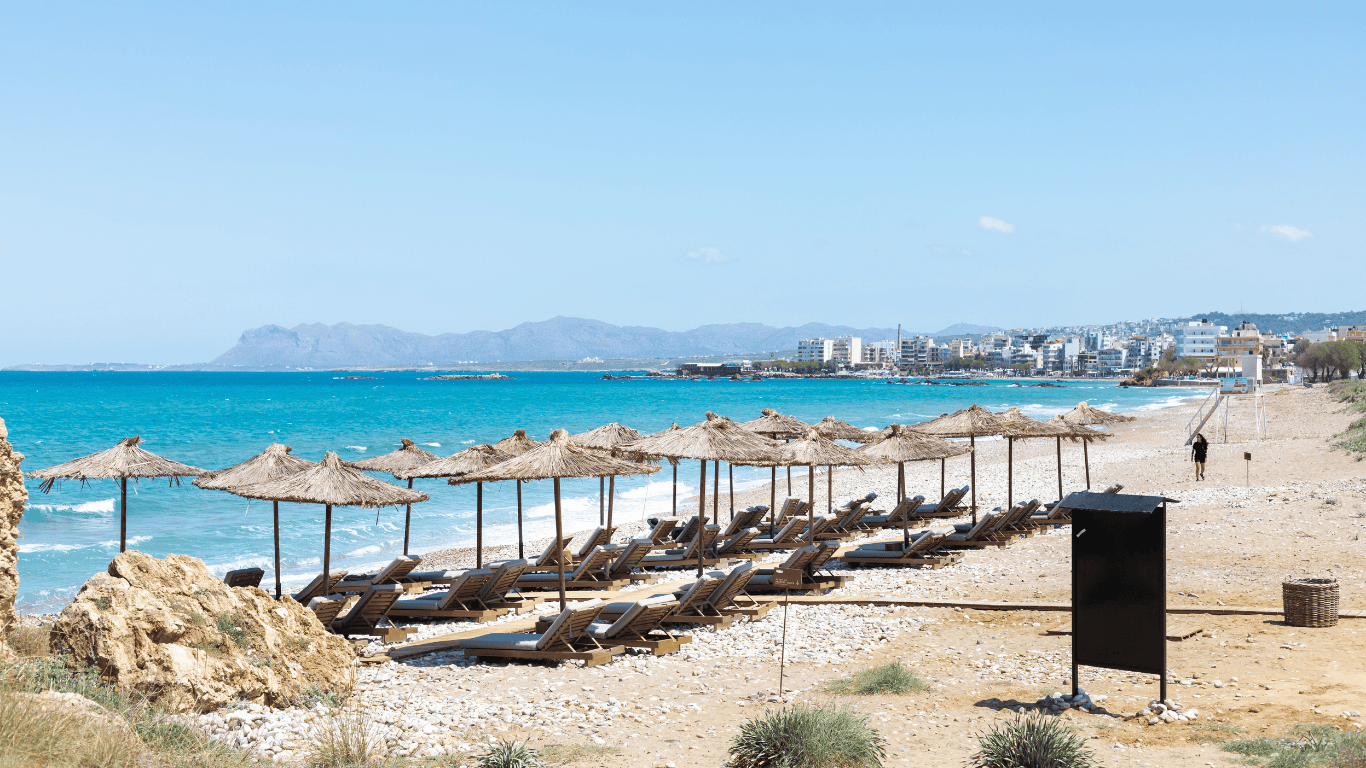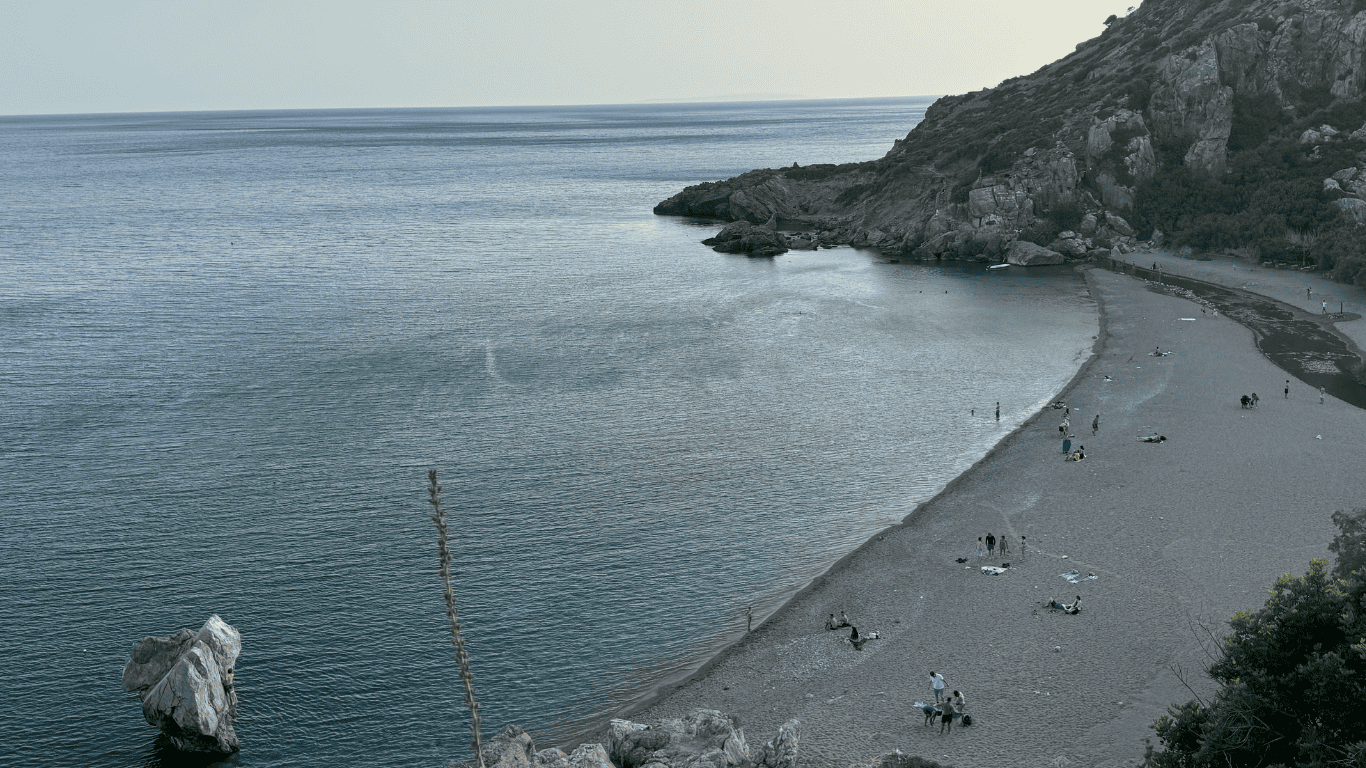Get a job in Crete
Living in Crete includes access to stunning beaches, crystal-clear waters, and breathtaking landscapes that make this Greek island a paradise. Furthermore, you can explore ancient ruins, such as the Palace of Knossos and a colourful but also relaxed city life.

Life in Crete
On the island of Crete, you can enjoy the beautiful beaches and crystal-clear waters, engaging in activities such as swimming, snorkeling, and sunbathing. Additionally, exploring the historical sites and charming villages, indulging in local cuisine, and experiencing the vibrant nightlife are all popular options for entertainment and fun on the island.
The nightlife in Crete offers a mix of options, depending on the area you’re in. Cities like Heraklion, Chania, and Rethymno have a vibrant nightlife scene with numerous bars, clubs, and live music venues. You can enjoy a variety of music genres, from traditional Greek to international hits. Beachfront areas often have beach bars and clubs that stay open late, providing a unique atmosphere for nighttime entertainment. Additionally, tavernas and restaurants in tourist areas may offer live music and entertainment during the evenings.
Work in Crete
- Average working hours per week: 40 hours, 8 hours daily
- Typical working day: Monday to Friday from 9:00 am to 6:00 pm
- Number of Vacation days: 20 days / 4 weeks
- Commute: Mostly by metro/train/tram or bus

FAQ
You can move to Crete by yourself, with a friend or as a couple. There are pros and cons to all of the situations. If you consider moving abroad with any kind of friend it can be a really good idea to sit down and talk through practical and everyday stuff such as economy, bills, cleaning, grocery shopping, cooking vs ordering, going out/staying in, how you deal with potentially going out without each other as well as having friends and family visiting (from near and far and extended visits). Apart from the practical arrangements, life is fun when you can share your new core memories with other people – so it is very recommendable to move abroad together. Moving with a friend can cause you to interact less with new people compared to if you move abroad by yourself. But if this is a good or a bad thing entirely depends on your personal goals and wishes as well as your personality.
Conclusion: communication is key if you and your friend decide to move abroad together
Crete is the largest Greek island and it offers various opportunities for walking and cycling enthusiasts. The island has many pedestrian-friendly areas, especially in its historic towns and cities like Chania and Heraklion, where you can explore on foot. Additionally, there are designated cycling routes and paths in certain areas, allowing you to enjoy cycling while taking in the island’s beautiful scenery. It’s advisable to check for specific cycling paths and local regulations before embarking on a cycling trip in Crete. For transport it is also recommended use buses, rent ATV’s or car, or go by taxi.
The cost of household and bills in Crete can vary depending on factors such as the size of the accommodation and individual consumption habits. On average, monthly utility bills including electricity, water, and heating can range from 100 to 200 euros. Internet and mobile phone plans can cost around 30 to 50 euros per month. Groceries for a single person can amount to approximately 150 to 200 euros per month, but this can vary depending on individual preferences and lifestyle choices.
Crete enjoys a Mediterranean climate with hot, dry summers and mild, wet winters. Average temperatures range from 15°C to 30°C in summer and 10°C to 16°C in winter. The island receives plenty of sunshine throughout the year.
Still not sure about moving to Crete?
Immerse yourself in Cretan traditions, vibrant festivals, and lively music and dance. Enjoy a relaxed lifestyle, surrounded by the warmth of the sun and the welcoming nature of the locals. Crete offers a unique blend of history, natural wonders, and island charm that will truly enrich your life.
In Crete, you can find good and affordable food options in local tavernas, small family-run restaurants, and street food stalls. Look for places where locals dine, as they often offer delicious and reasonably priced meals. Explore the local markets and grocery stores to find fresh produce, local products, and ingredients to cook your own meals if you’re on a budget. Additionally, bakeries and pastry shops are great for grabbing quick and inexpensive snacks or breakfast items.


